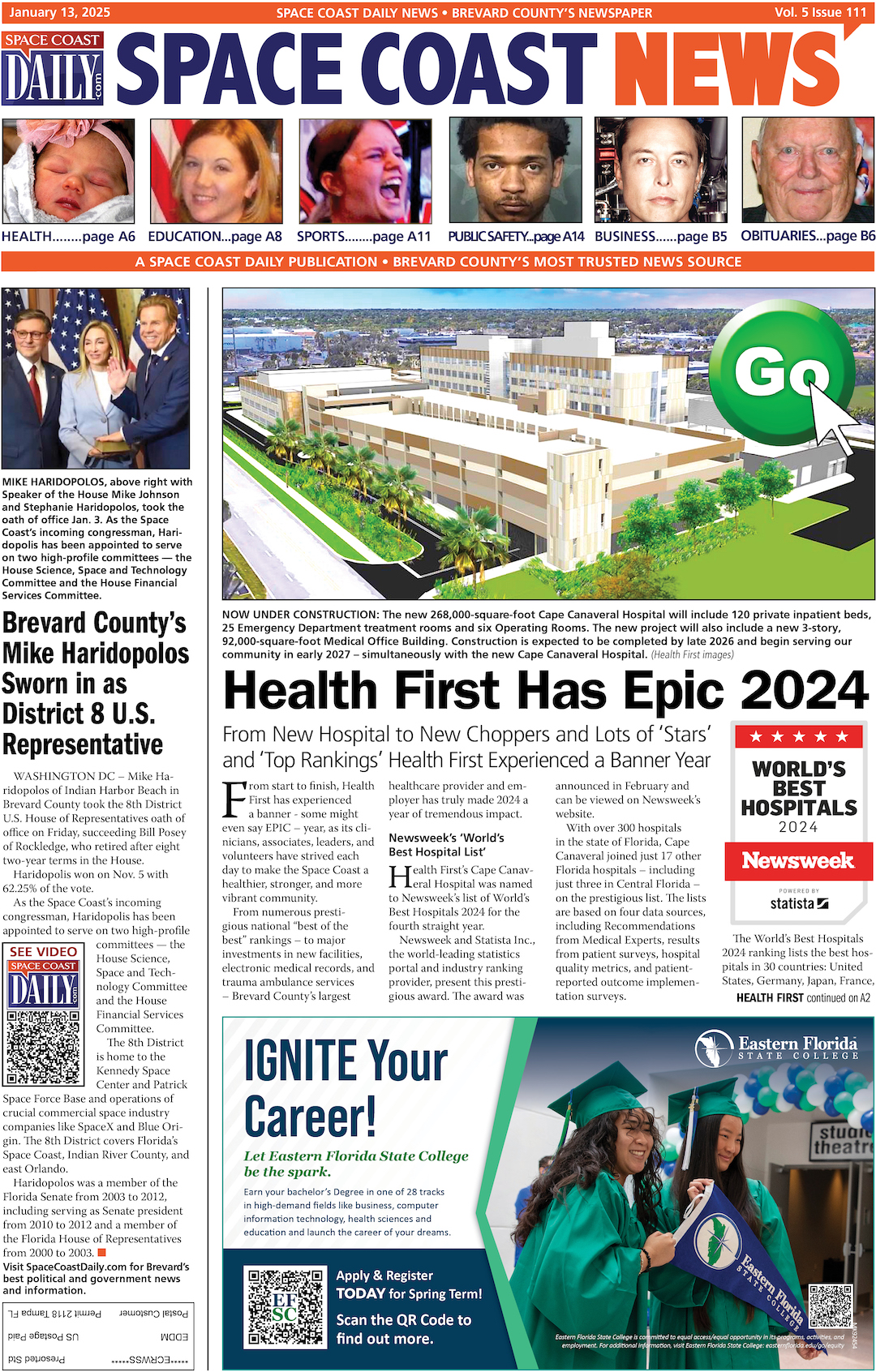Leen Kawas on the Ties That Lead: Women Bridging Technology and Humanity in the Year Ahead
By Space Coast Daily // January 18, 2025

The integration of artificial intelligence and advanced technologies into healthcare and biotechnology presents both unprecedented opportunities and profound ethical considerations.
Through her experience at the forefront of biotechnology innovation, Leen Kawas has gained valuable insights into how female leaders help ensure technological advancement serves human needs while maintaining ethical standards.
“Technology can lead to better tools for individualized and precision medicine. It allows us to make sense of the different factors that can make each individual or patient unique,” explains Leen Kawas, Managing General Partner at Propel Bio Partners. This perspective exemplifies how women leaders often approach technology through a deeply human lens.
The Human Element in Technological Innovation
Female leaders frequently demonstrate particular skill at maintaining focus on human impact while pursuing technological advancement. This proves especially valuable in biotechnology, where innovations directly affect patient lives and well-being.
“Using AI to have a holistic view of patients and individuals can lead to the discovery of new therapies or technologies that can help humans live healthier and better,” says Leen Kawas. This comprehensive approach represents a departure from purely technical perspectives, incorporating consideration of broader societal implications.
Women executives often excel at identifying applications of emerging technologies that address genuine human needs rather than pursuing innovation merely for its own sake. This human-centered approach proves particularly valuable in healthcare-related fields, where understanding patient experiences and concerns remains crucial for developing effective solutions.
Fostering Ethical Innovation
The rapid advancement of artificial intelligence and machine learning in healthcare creates pressing ethical considerations. Female leaders frequently demonstrate particular aptitude for navigating these complex waters, balancing technological capabilities with ethical imperatives.
“AI enables us to bring a number of different data points together to empower more accurate and comprehensive decision-making,” Kawas notes. However, she emphasizes the importance of maintaining robust data protection measures and ensuring patient privacy remains paramount.
This balanced approach exemplifies how women leaders often excel at identifying potential ethical implications early in development processes. Their ability to anticipate and address ethical concerns while maintaining innovation momentum proves increasingly valuable as technology capabilities expand.
Building Inclusive Development Teams
Female executives frequently prioritize building diverse, inclusive teams that bring varied perspectives to technological development. This approach helps ensure innovations address needs across different demographic groups and cultural contexts.
“Clear, effective communication and emphasis on collaboration characterize many women’s leadership styles,” Kawas observes. “This creates environments where team members feel comfortable expressing concerns about potential negative implications of technological applications.”
This inclusive approach extends beyond gender diversity to encompass varied educational backgrounds, cultural perspectives, and life experiences. Such diversity often leads to more thorough consideration of potential impacts across different population segments.
Maintaining Transparency and Trust
As artificial intelligence and advanced technologies become increasingly integral to healthcare delivery, maintaining public trust proves crucial. Female leaders often demonstrate particular skill at fostering transparency in technological development and implementation.
“Companies that focus on cultivating team members’ trust reap multiple benefits,” Kawas explains. “This translates into increased employee engagement, higher productivity, and frequently a better bottom line.” This emphasis on trust extends to relationships with patients, regulatory bodies, and broader stakeholder communities.
Women executives frequently excel at communicating complex technological concepts in accessible terms, helping stakeholders understand both benefits and limitations of new technologies. This transparency helps build sustainable trust in technological innovations.
Bridging Technical and Emotional Intelligence
The integration of artificial intelligence into healthcare requires careful balance between technical capabilities and human factors. Female leaders often demonstrate particular skill at bridging this divide, combining technical understanding with emotional intelligence.
“When leaders lack all relevant information, they may postpone a decision until they have a clearer grasp of the situation,” notes Leen Kawas. This measured approach, characteristic of many women leaders, helps ensure technological implementations serve their intended purposes while minimizing unintended consequences.
This combination of technical and emotional intelligence proves particularly valuable in healthcare settings, where technological innovations must integrate seamlessly with existing care delivery systems and human interactions.
Creating Sustainable Innovation
Female leaders frequently demonstrate commitment to ensuring technological advances create sustainable, long-term benefits rather than short-term gains. This approach proves particularly valuable in healthcare, where innovations must prove both effective and sustainable over time.
The emphasis many women executives place on collaborative approaches and inclusive decision-making helps ensure technological implementations receive thorough evaluation from multiple perspectives. This comprehensive assessment helps identify potential challenges early, enabling more effective solutions.
Through their unique leadership approaches, women executives continue demonstrating how maintaining focus on human needs and ethical considerations while pursuing technological innovation creates more sustainable and beneficial advances. Their success provides valuable lessons for ensuring technology serves humanity’s best interests while maintaining ethical standards.












